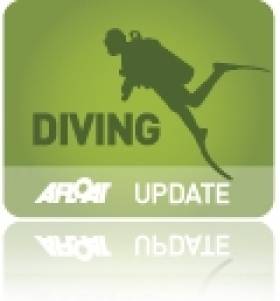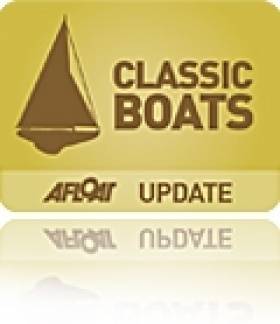Displaying items by tag: Bronze Age
Offaly Diver Raises Bronze Age Sword From Shannon
#Diving - A Bronze Age sword has been plucked from the River Shannon in Co Offaly by a local diver, according to the Irish Independent.
And it's only the latest in a series of historical finds by members of the Shannonside Sub Aqua Club in Banagher, which has previously fished out Viking and Celt weaponry from the river.
The latest find is thought to be some 3,500 years old, and was only discovered by accident when diver Michael O Ruairc was in a routine search and rescue exercise.
The Irish Independent has more on the story HERE.
Vandals Damage Dover's Bronze Age Boat
#BronzeAgeBoat - Dover's replica Bronze Age boat has been moved to a secure location after being vandalised, according to Kent Online.
It's reported that a tent covering the vessel on the port town's Roman Lawn was damaged, and saw marks were made on one side.
The incident comes just days ahead of the launch of a campaign to fund works on the historic boat - a half-size replica of one built some 3,500 years ago - to make it seaworthy after it sank in the Dover docks last year.
A similar project in Cornwall saw the fruit of its own restoration work this past March, when their 50ft Bronze Age boat was set afloat in Falmouth.
As previously reported on Afloat.ie, the Cornish boat is crafted from two giant oak logs and using tools similar to what boat builders of the time world have used in the post-Neolithic era.
Bronze Age Boat Is Afloat!
#BronzeAgeBoat - After nearly a year of hard work by a team of volunteers in Cornwall, a pioneering heritage project to recreate an ocean-going boat from the Bronze Age finally saw its results take to the water recently.
The 50ft long, five-tonne vessel was crafted out of two giant oak logs using the tools and methods that the first boat builders would have had to hand some 4,000 years ago.
“It has been incredible to see this whole project take shape in the Museum building over the past 11 months," said Andy Wyke of the National Maritime Museum Cornwall.
Volunteers led by shipwright Brian Cumby worked in collaboration with leading Bronze Age boat expert Prof Robert Van de Noort and his colleagues at the University of Exeter to produce the finished article, which was successfully paddled in Falmouth Harbour much to everyone's delight and relief.
“There have been doubters, professionally, who questioned the feasibility of this vessel crossing the seas," said Prof Van de Noort. "This project has proven that it was possible.”
The boat is now on display at the museum's pontoon in Falmouth.


























































